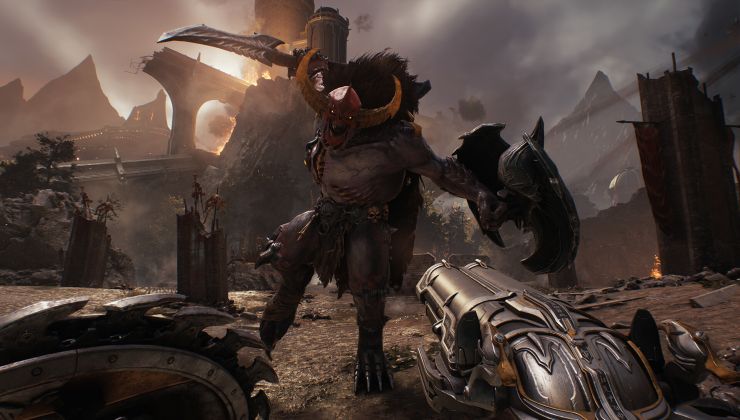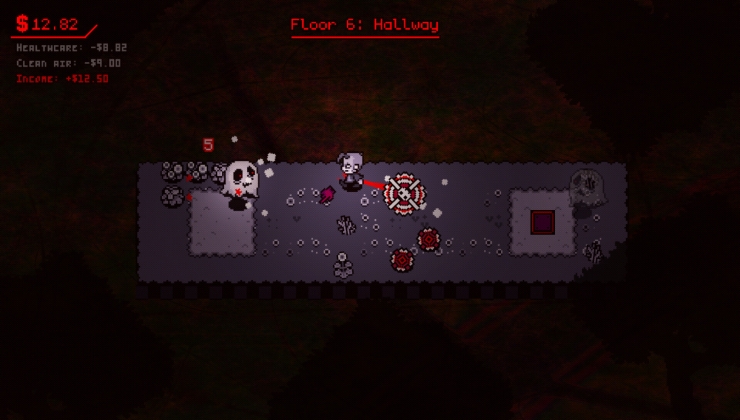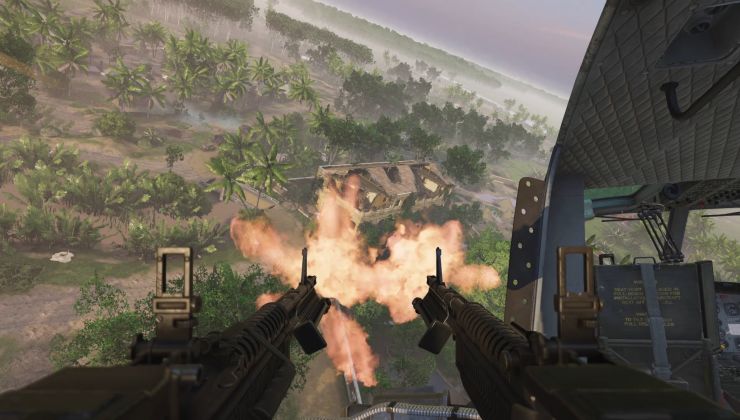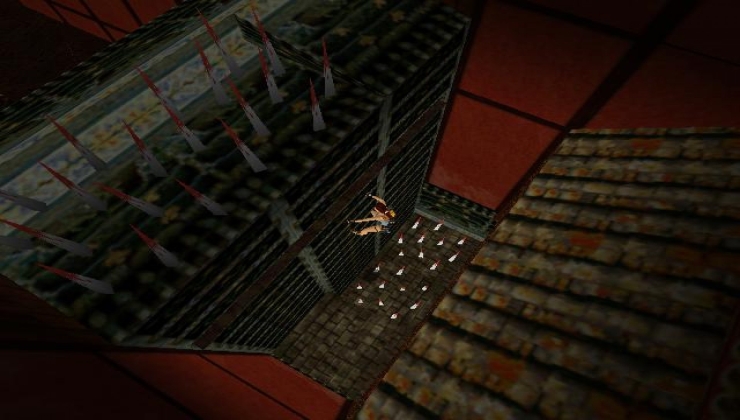Update: Canonical are now saying 32bit libraries will be "frozen" and not entirely dropped.
Original article:
Things are starting to get messy, after Canonical announced the end of 32bit support from Ubuntu 19.10 onwards, Valve have now responded.
Speaking on Twitter, Valve dev Pierre-Loup Griffais said:
Ubuntu 19.10 and future releases will not be officially supported by Steam or recommended to our users. We will evaluate ways to minimize breakage for existing users, but will also switch our focus to a different distribution, currently TBD.
I'm starting to think we might see a sharp U-turn from Canonical, as this is something that would hit them quite hard. Either way, the damage has been done.
I can't say I am surprised by Valve's response here. Canonical pretty clearly didn't think it through enough on how it would affect the desktop. It certainly seems like Canonical also didn't speak to enough developers first.
Perhaps this will give Valve a renewed focus on SteamOS? Interestingly, Valve are now funding some work on KWin (part of KDE).
Looks like I shall be distro hopping very soon…
To journalists from other websites reading: This does not mean the end of Linux support, Ubuntu is just one distribution.
I am heartened by the fact that a number of Ubuntu derivatives such as Mint and Pop_OS! have indicated that they will continue to offer 32-bit support in some form. Has anybody heard from Elementary or KDE Neon yet?
Some answers in [this discussion on Twitter](https://twitter.com/blogdiolinux/status/1142460454616387595).
Last edited by riusma on 23 Jun 2019 at 9:57 am UTC
If Valve move to FreeBSD, that will be great! Because BSD is more faster than Linux. Only AMD cards will have no binary drivers, so will force to use Mesa. For Nvidia is OK. PlayStation uses BSD already and we saw how it run.
macos is also based on BSD and we know how that goes
I can not believe they do that. that is a suicide mission for ubuntu and ubuntu based distros and i hope they overthink this
There needs to be a Ubuntu Devs meme where they are sitting around a round table and are like What Terrible Idea Can We Come Up With This Year?
It's not that 64-bit shouldn't overtake 32-bit in the app / game space, but in the library space it's not a sane solution.
As these problems come up and with developments in ARM, POWER9, RISC I am beginning to think that binary distros are not the way.
What I'm afraid of is what it will cost to switch to a source package manager distro -- I am under the impression that even Gentoo has some ideology and thinking in implementation form that is stuck in 2008.
It's a shame Ubuntu couldn't learn a lesson from Gobo Linux where they organize packages /Programs/X-Library/V.XX/[files] -- if Linux took a page from their book we would have never needed Snaps or Flatpaks because multiple dependency versions could co-exist, and on servers where security matters they could simply require the latest version or have a secure channel of approved versions completely mitigating the necessity of LTS and having the best of Rolling Release and Point Release stability and freshness all while eliminating the necessity to over-engineer solutions that never should have needed to exist to begin with.

But either way, no one's forcing you to upgrade to 19.10. The practical difference between the versions are only smaller and smaller for each year.
I used to always upgrade back in the days for great benefits, but now I don't even care if I use 18.04 (@work) or 18.10 (@home), I've not even bothered upgrading to 19.04.
So there's really no reason for rushed decisions no matter what.
I'll not be surprised if Canonical backs out of this decision again, seeing the reception.
But either way, no one's forcing you to upgrade to 19.10. The practical difference between the versions are only smaller and smaller for each year.
I used to always upgrade back in the days for great benefits, but now I don't even care if I use 18.04 (@work) or 18.10 (@home), I've not even bothered upgrading to 19.04.
So there's really no reason for rushed decisions no matter what.
The support of your 18.10 ends with the release of 19.10. The support of the 19.04 a few weeks later. I don't know if that puts you under pressure but it would annoy me. Precisely because nothing changes in Ubuntu.
I'll not be surprised if Canonical backs out of this decision again, seeing the reception.Yep, that will be my "solution" if Mint 20+ will get perma-crocked due to this. I waited a long time to upgrade to 19.1, and would be fine sticking with that for a long while.
But either way, no one's forcing you to upgrade to 19.10. The practical difference between the versions are only smaller and smaller for each year.
I used to always upgrade back in the days for great benefits, but now I don't even care if I use 18.04 (@work) or 18.10 (@home), I've not even bothered upgrading to 19.04.
So there's really no reason for rushed decisions no matter what.
Mint Debian may be a solution too. Presumably the Mint team will put more effort into that side if Ubuntu-based versions get a shot to the face like this.
Last edited by Pangaea on 23 Jun 2019 at 11:57 am UTC
Yes it is sad but some websites would love to use this sort of news to make sensationalist articles.To journalists from other websites reading: This does not mean the end of Linux support, Ubuntu is just one distribution.
Isn't it saaad that you FEEL you HAVE to precise that at the bottom of your article ?
Like for real this is the epidemy of "Hey you'll want to pull some shenanigans you can't use my ass for this shit fuck off find another pigeon for this"
BUT Valve should also recreate a new desktop environment, which aims more for PC instead of Console.
I'll not be surprised if Canonical backs out of this decision again, seeing the reception.
But either way, no one's forcing you to upgrade to 19.10. The practical difference between the versions are only smaller and smaller for each year.
I used to always upgrade back in the days for great benefits, but now I don't even care if I use 18.04 (@work) or 18.10 (@home), I've not even bothered upgrading to 19.04.
So there's really no reason for rushed decisions no matter what.
The support of your 18.10 ends with the release of 19.10. The support of the 19.04 a few weeks later. I don't know if that puts you under pressure but it would annoy me. Precisely because nothing changes in Ubuntu.
No, the normal release have 9 months of support after release, so 18.10 is supported until July 2019, so 3 months before 19.10 releases, and 19.04 will have support for 3 months after 19.10 releases until January 2020.
https://wiki.ubuntu.com/Releases
Is it really because of the decision to drop 32bit OS support? Nobody, literally nobody, especially not Valve's target audience, is still using a 32 bit OS unless they just don't know any better. I think it's more because they already have steamOS and ubuntu is falling out of fashion anyways.
You can't run all your 32 bit games without it.
Is it really because of the decision to drop 32bit OS support? Nobody, literally nobody, especially not Valve's target audience, is still using a 32 bit OS unless they just don't know any better. I think it's more because they already have steamOS and ubuntu is falling out of fashion anyways.Again they are not just dropping the 32 bit flavor , they are freezing the 32 bit multilib in terms of update (essentially deprecating it ) sooo as a result a lot of your games on steam won't work out of the box on newer versions of Ubuntu but more importantly even after trying to get the 32 bit libs it might still not work all that well because they're not updating them anymore either .
I am not without sympathy for Canonical's decision, since providing support for any processor architecture involves a non-trivial amount of effort. But how much of the work required for multiarch support is performed by Canonical and how much comes from upstream Debian maintainers? Why can't we treat the provision of a 32-bit compatibility layer just like the support of any other compatibility layer (e.g. Wine)?
The argument that developers should offer games as Snaps or bundle all 32-bit dependencies with the executable isn't going to fly in the real world. For one thing, game engines can have hidden 32-bit dependencies that are not obvious to developers. And very few game developers will be willing to update their entire back catalogue just to make things work on Ubuntu. Plus it is unlikely that developers will choose to distribute their work as Snaps as this package format is not yet widely accepted as the default.
Meanwhile, the suggestion that Ubuntu should freeze the 32-bit libraries at their current versions is irresponsible. It means that security bugs in these libraries will never get patched, even if the upstream maintainers release patches.
I am heartened by the fact that a number of Ubuntu derivatives such as Mint and Pop_OS! have indicated that they will continue to offer 32-bit support in some form. Has anybody heard from Elementary or KDE Neon yet?
I feel that this decision will do immense harm to the Ubuntu brand in the community. While it has been under the discussion for some time, the announcement of a final decision only three months out from the release 19.10 is a public relations disaster. This is the kind of decision that requires a communication plan and long lead times. It breaks a large amount of software, including hardware drivers only offered in 32-bit builds. It's easy to point out that hardware manufacturers should be offering 64-bit driver build, but the truth is that many companies only grudgingly support Linux in the first place. And in the gaming area, it is unlikely that publishing houses will change their release strategies just to accomodate this move.
It might be time to look at putting Manjaro on my main desktop computer if none of the Ubuntu derivatives can implement a workaround...
I agree with most you said, but the 32bit packages from 18.04 will still get security fixes as long as 18.04 is supported.
I personally think, that Valve should create a Linux-Distribution, which is NOT based on Debian or Arch. It would be much better to have more controls, hat should remain and what not.
BUT Valve should also recreate a new desktop environment, which aims more for PC instead of Console.
And call it
Crowbar Linux
The support of your 18.10 ends with the release of 19.10. The support of the 19.04 a few weeks later. I don't know if that puts you under pressure but it would annoy me. Precisely because nothing changes in Ubuntu.
You have to add some months but either way: Who cares. Noone should.
In a production environment? Sure, support is crucial. But as a desktop computer on a home network behind a firewall and especially if that partition is just used for gaming? Care. I mean, it's not optimal but my point here is that there's really no rush. No need for hasty decisions at all.
Put 19.10 on a second partition and see how it affects you, having a fully functional second partition to boot as an option. That's my advice (and has always been my advice regardless of this particular thing).
Last edited by Beamboom on 23 Jun 2019 at 3:17 pm UTC
SteamOS being Debian-based, recommending Debian or Mint/Debian would make a lot of sense. But it is true that Debian is not for beginners.
Agreed. Pure Debian is tricky to install, configure and maintain (compared to Ubuntu).
Perhaps Mint-Debian then...
Who knows.....
I never got what's tricky about installing Debian? Apart from it's partitioner not crashing like Ubuntus did when i last tried to install it. If you use graphical install, it shouldn't be harder than installing windows, or ubuntu. As i recall, it even asks the same questions.
I personally think, that Valve should create a Linux-Distribution, which is NOT based on Debian or Arch. It would be much better to have more controls, hat should remain and what not.
BUT Valve should also recreate a new desktop environment, which aims more for PC instead of Console.
And call it
Crowbar Linux
Or Free Man's Linux
I personally think, that Valve should create a Linux-Distribution, which is NOT based on Debian or Arch. It would be much better to have more controls, hat should remain and what not.
BUT Valve should also recreate a new desktop environment, which aims more for PC instead of Console.
That's a terrible idea. Valve only wants to control the graphics drivers and at most a handful of packages that make the steam client and games work. The bare minimum, so what they did with Steamos. Of course, they need to control package versions if they want to sell it as part of their own control package, that's why they made Steamos at all in my opinion.
Last edited by dvd on 23 Jun 2019 at 3:22 pm UTC
I'll not be surprised if Canonical backs out of this decision again, seeing the reception.
Already happened:
https://www.omgubuntu.co.uk/2019/06/is-ubuntu-not-dropping-32-bit-app-support-after-all
I’m sorry that we’ve given anyone the impression that we are ‘dropping support for i386 applications‘. It is simply not the case. What we are dropping is updates to the i386 libraries, which will be frozen at the 18.04 LTS versions.












 How to set, change and reset your SteamOS / Steam Deck desktop sudo password
How to set, change and reset your SteamOS / Steam Deck desktop sudo password How to set up Decky Loader on Steam Deck / SteamOS for easy plugins
How to set up Decky Loader on Steam Deck / SteamOS for easy plugins
See more from me